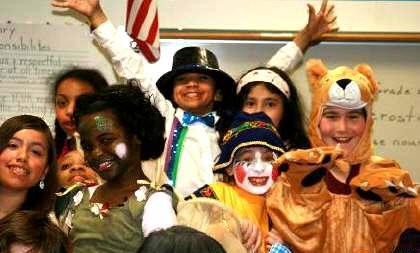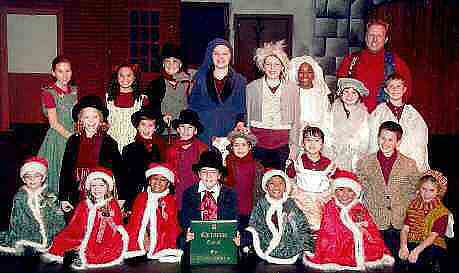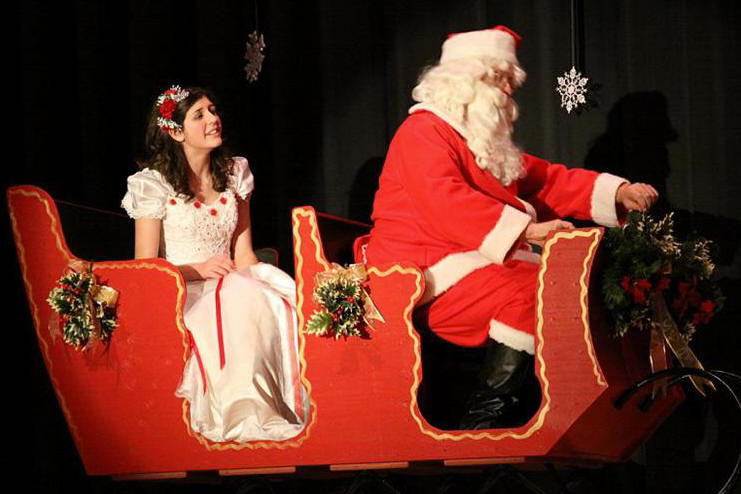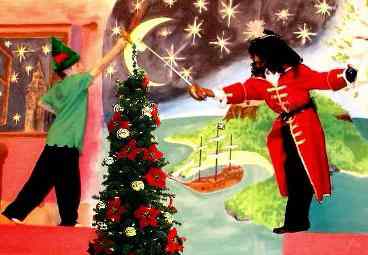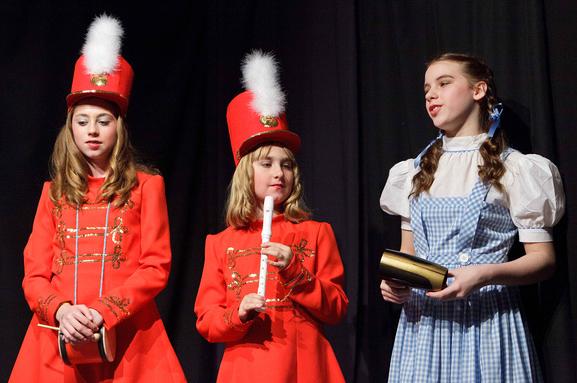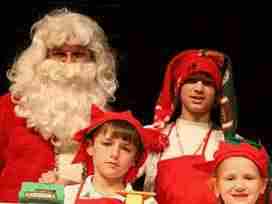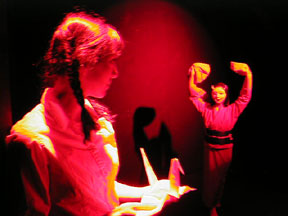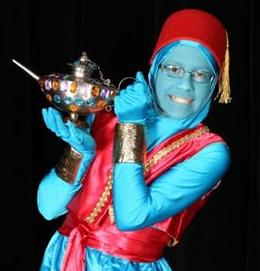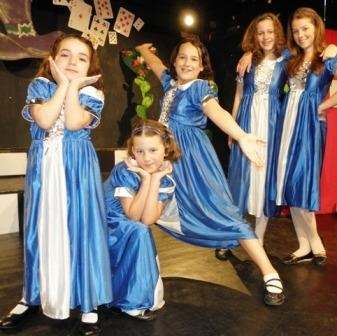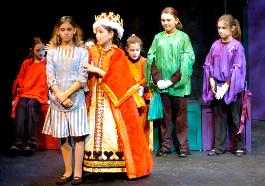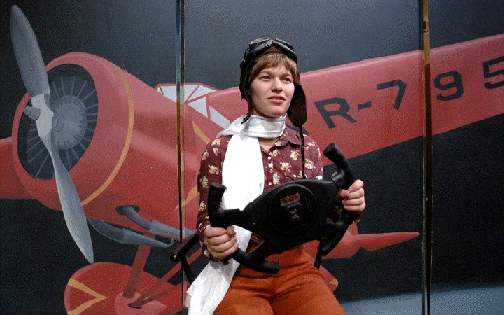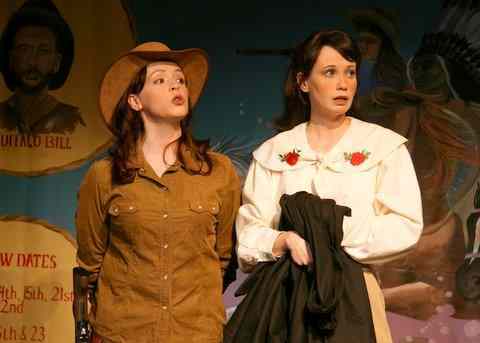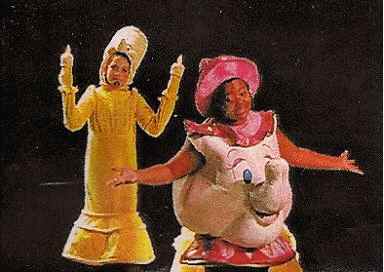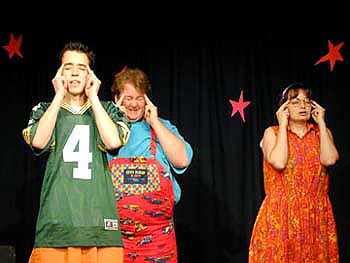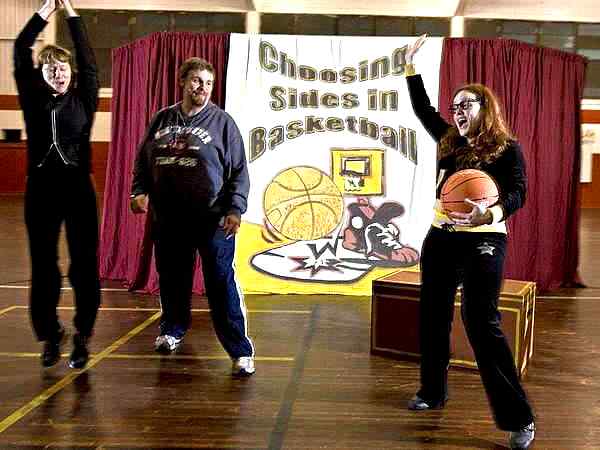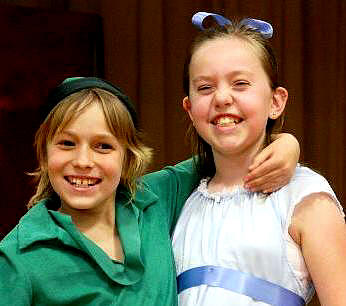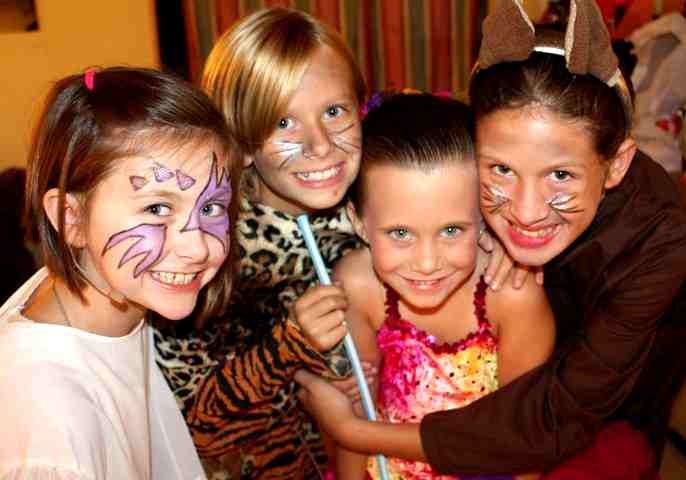Lets Talk
About Peter Pan!
Get Your
Cast and Class Ready With Discussion on Peter Pan!
Discussion / Questions:
Have a class discussion about what it would be like to never grow up
and to live in an imaginary – make-believe – place like Neverland:
What would happen if you
never grew up, never got older?
(You’d be in this
same class forever! No more birthdays! Nor birthday presents! Your
friends would get older, graduate, go away, you’d still be a
kid! Etc., etc. This can be fun.)
Why do you think Peter Pan
never wanted to grow up?
(On the day he was born
his parents told him all the things he would have to do when he grew
up – so he ran away from home! Now, that’s pretty imaginative!)
Do you think there’s
actually a magical place like Neverland?
(There was for Peter
Pan! Neverland is an imaginary place created by the man who wrote the
story, J. M. Barrie. Even Peter Pan and all the people in the story
are imaginary. But isn’t imagination a wonderful thing? Without
it we wouldn’t have wonderful stories like Peter Pan, the Wizard
of Oz, Cinderella.)
Can you think of your own
magical place? What would you call it?
(Magicland? Fantasyland?
Funnyland? Weirdland? Billyland, Maryworld...)
Who would live in your
magic land?
(You? Me? Pirates? Space
people? Crocodiles? Dinosaurs? Green elephants? Hump back camels and
chimpanzees? Unicorns?)
Can you really fly? But can
you imagine what it would be like to fly?
(Sometimes the only way
we can "do” something is to imagine doing it.) (Continue
the discussion...)
What would it be like if we
couldn’t imagine fun or silly or impossible things?
If we couldn’t play?
If we had to be serious and real all the time?
Even when we get older
we’ll still like to imagine fun things, won’t we?
So even though we all have
to get older, maybe we can be like Peter Pan by using our
imaginations to create a world where we "never grow up”
– like writing stories, painting pictures, playing music...
Or performing a play.
Fun
Learning with Creative Dramatics
Pantomime!
Sculptures! Court of Animals!
Pantomime
Explain pantomime to
children as acting without words or props. It combines elements of
theater and works best with a strong script or actions and allows the
actors to "talk” without speaking. The secret is to
exaggerate everything and move in slow motion.
For simple pantomime
activities, pick kids and ask them to pretend they are doing sports
activities. The kids in the audience should try to guess what the
"actor” is doing. If possible, have enough activities so
that every child has an opportunity to pantomime.
Creating Sculptures
Divide the class into
pairs. In each pair, one student is the "sculptor" and one
the "clay." The sculptor "sculpts" his or her
partner's body into a statue of his or her choosing. The sculptor may
do this by physically moving the partner's body into position, or by
showing the "clay" how to stand. The sculptor pays close
attention to even small details like facial expression or the
position of a finger.
When the
"sculpture" is finished, she or he freezes. (It the
position is difficult or impossible to hold, the "sculpture"
may memorized it and then relax until her or his turn in the
"tour" arrives.
Once all of the artists
have finished their masterpieces, I call them together in the center
of the room. The "sculptures" remain in place around the
room. In role as a museum guide, I conduct a tour of the
"gallery." When we reach each work, the artist who made it
steps forward and explains his or her work to the group. In this way
we make a complete tour, giving each artist a chance to show off and
describe his or her work.
Once a "sculpture"
has been viewed, she or he may relax and join the group on the rest
of the tour. Once the "tour" is finished, the partners
switch roles and the process is repeated.
Fun With
Creative Dramatics!
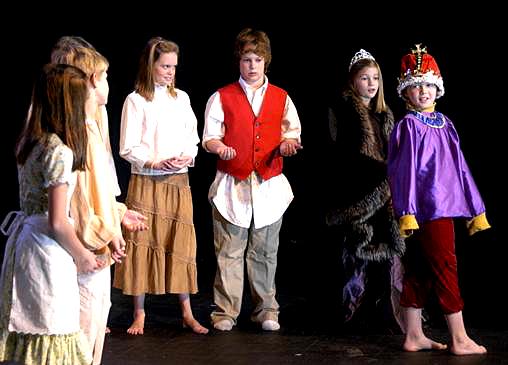
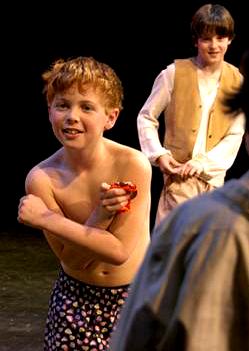
Audience Participates in
the Emperor's Parade!
Ensworth School, Nashville, TN
Emperor’s
Court of Animals
Every good Emperor, like a
King, needs a court. A King needs to have people around him who are
his friends, whom he can trust and upon whom he can rely. These
people are called courtiers. What qualities should courtiers possess?
Some will suggest: "strong," and "brave,"
"helpful" and "loyal," and "clever."
Think about which animals exemplify each quality. (For example,
elephants are strong and helpful, dogs are helpful and brave, cats
are clever and brave, horses are loyal and helpful, etc.)
Discuss the sort of animals
who would make good courtiers Appoint an "Emperor” and call
the animals forward. He asks, "What sort of animal are you?"
The student announces what animal he or she is portraying. The
student then describes the qualities of her/his animal that make that
court." After the animals have been named have them have a
"royal procession” with the Emperor leading the animals
around the room.
